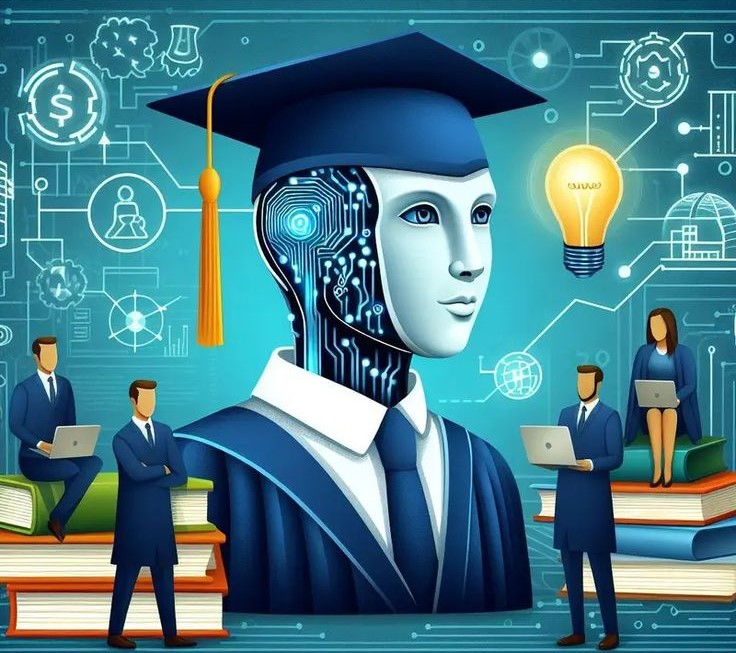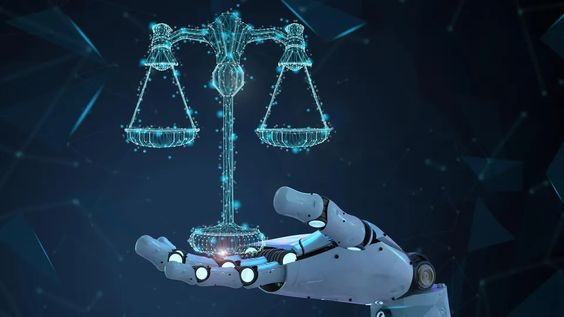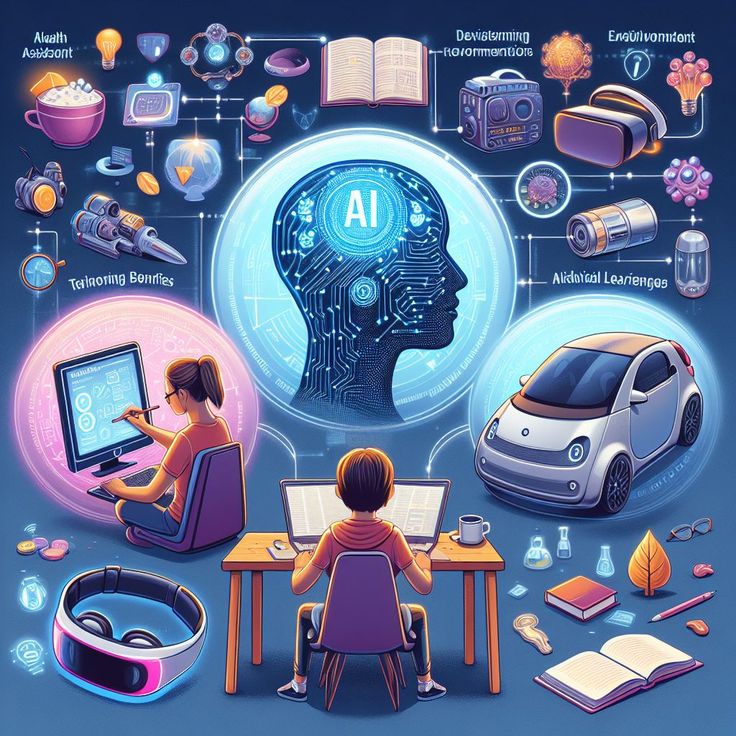
Table of Contents
The internet has revolutionized the way we learn, and the advent of powerful AI tools like ChatGPT has only accelerated this change. Students now have unprecedented access to information and assistance, blurring the lines between legitimate help and unethical shortcuts.
Developed by OpenAI, ChatGPT is a large language model chatbot, capable of generating human-quality text, translating languages, writing different kinds of creative content, and answering your questions in an informative way. While these capabilities present exciting opportunities for learning and research, they also raise concerns about potential misuse in academic settings.
This article will explore the diverse ways students can utilize ChatGPT to write assignments while acknowledging the ethical tightrope involved. It will also highlight the future of AI tools in learning and research, pointing to what we should expect in the ever-expanding technological landscape.
Leveraging ChatGPT to Write Assignments
While some students are already using ChatGPT to write assignments, a majority of them are still very new to the AI frontier. These tools can be utilised in numerous ways to enhance learning and research. The following are the key ways students can leverage ChatGPT in assignment writing.
1. Brainstorming and Idea Generation
- Overcome Writer’s Block: Stuck on an essay topic? ChatGPT can help you brainstorm ideas by providing relevant information, generating different perspectives, and suggesting potential arguments. Simply input the assignment prompt or your general area of interest, and let ChatGPT’s creative juices flow.
- Explore Different Angles: Ask ChatGPT to analyze your chosen topic from various viewpoints, considering opposing arguments and potential counterpoints. This exercise can help you develop a more nuanced and well-rounded understanding of the subject matter.
2. Research and Information Gathering
- Quick Fact-Checking: ChatGPT can swiftly retrieve information on a wide range of topics, acting as a convenient fact-checking tool for your assignments. However, always double-check the information provided with reliable sources, as ChatGPT’s knowledge base may not always be completely up-to-date.
- Finding Relevant Resources: Struggling to locate relevant articles or studies? Provide ChatGPT with your research topic and specific keywords, and it can suggest potential sources for your paper. However, always evaluate the credibility and reliability of these suggested sources yourself before incorporating them into your work.
3. Improving Writing and Structure
- Grammar and Style Check: While not a replacement for dedicated grammar tools, ChatGPT can help identify and suggest corrections for basic grammatical errors and stylistic inconsistencies. Many students say using ChatGPT to write assignments makes it easier to overcome grammatical and stylistic issues.
- Enhancing Clarity and Flow: Inputting paragraphs or sections of your writing can prompt ChatGPT to offer suggestions for improvement, such as rephrasing awkward sentences, improving transitions between ideas, and ensuring logical flow.
4. Understanding Complex Concepts
- Explanations and Definitions: Struggling to grasp a complicated theory or concept? ChatGPT can provide simplified explanations, define key terms, and even offer real-world examples to aid your understanding.
- Breaking Down Information: Ask ChatGPT to summarize lengthy texts or research articles, extracting the key takeaways and main arguments. This can be particularly helpful when tackling dense and complex academic readings.
The Ethical Tightrope: Avoiding Plagiarism and Maintaining Academic Integrity

While AI offers powerful assistance in academia, it’s crucial to remember that using ChatGPT to write assignments directly can contribute to plagiarism. Submitting work generated entirely by AI is a violation of academic integrity and can have serious consequences.
The following strategies can help you to avoid crossing the line when using ChatGPT to write assignments.
- Treat ChatGPT as a Thought Partner, not a Ghost-writer: Use the tool to generate ideas, gather information, and refine your writing, but never submit its output as your own.
- Understand the Limits of AI: ChatGPT lacks critical thinking, original analysis, and personal insight – all crucial elements of academic work.
- Develop Your Own Voice and Arguments: Your assignments should reflect your own understanding and analysis of the material. Using ChatGPT to bypass this crucial process undermines your learning and intellectual growth.
- Cite Your Sources, Including AI Tools: While not traditional sources, it’s good academic practice to acknowledge the use of AI tools in your research and writing process. This transparency demonstrates your commitment to ethical research practices.
Check out this article to read more about how to avoid plagiarism and maintain academic integrity when using ChatGPT to write assignments.
A Call for Adaptation of AI in Learning
AI tools like ChatGPT are here to stay. They are becoming increasingly sophisticated and integrated into various aspects of our lives. Rather than fearing this evolution, educators and institutions should adapt and embrace the potential of these tools while establishing clear ethical guidelines for their use.
Here are some potential avenues for the adaptation of ChatGPT in learning.
- Shifting Focus from Rote Learning to Critical Thinking: As AI becomes more adept at providing information, educational assessments should prioritize critical thinking, analysis, and original thought – skills that are difficult for AI to replicate.
- Teaching Digital Literacy and Ethical AI Use: Incorporating digital literacy and ethical AI use into curricula will equip students with the skills to navigate this evolving technological landscape responsibly.
- Exploring Collaborative Learning Opportunities with AI: AI tools can facilitate collaborative learning experiences, with students working together to analyze AI-generated content, identify biases, and develop their own unique perspectives.
ChatGPT and similar AI tools are powerful assets for learning and research when used responsibly. They can help you brainstorm ideas, improve your writing, and deepen your understanding of complex concepts. However, it’s crucial to remember that these tools should supplement, not supplant, your own effort and intellectual contributions. By using AI ethically and embracing the evolving landscape of education, students can harness the power of these tools to enhance their learning and achieve academic success without compromising their integrity.
The hallowed halls of academia are no longer immune to the sweeping tide of artificial intelligence. AI, once relegated to the realm of science fiction, is rapidly transforming the landscape of academic research, promising both unprecedented opportunities and unforeseen challenges.
AI as a Research Assistant: Automating the Tedious and Illuminating the Complex

One of the most immediate impacts of AI is its potential to automate tedious and time-consuming research tasks. AI-powered tools such as ChatGPT can now sift through mountains of data, identify patterns, and extract relevant information with remarkable speed and accuracy.
The use of ChatGPT to write assignments and conduct research frees up researchers to focus on higher-level analysis and interpretation. Image the following scenarios.
- Accelerated Literature Reviews: No more endless scrolling through databases. AI algorithms can quickly scan and analyze thousands of research papers, identifying key findings, highlighting relevant studies, and even suggesting potential research gaps.
- Data Analysis on Steroids: AI excels at handling massive datasets, uncovering hidden correlations, and generating visualizations that would be impossible for humans to discern. This has groundbreaking implications for fields ranging from astronomy and genomics to economics and social sciences.
- Automated Experimentation: AI is being used to design and conduct experiments in fields like material science and drug discovery, significantly accelerating the research process and potentially leading to faster breakthroughs.
Beyond Automation: AI as a Catalyst for New Discoveries
The true transformative power of AI lies not just in automation, but in its ability to augment human intelligence and push the boundaries of knowledge. AI algorithms can:
- Identify Novel Patterns and Connections: By analyzing data in ways that humans cannot conceive, AI can uncover unexpected correlations and hidden patterns, potentially leading to breakthroughs in fields like medicine, climate science, and particle physics.
- Develop New Research Hypotheses: AI can analyze existing research to identify promising areas for further exploration, suggesting new research questions and hypotheses that might have been overlooked by human researchers.
- Facilitate Interdisciplinary Research: By bridging disciplinary silos and connecting disparate datasets, AI can facilitate collaboration and knowledge sharing across traditionally separate fields, fostering new avenues of inquiry.
Navigating the Ethical Minefield: Responsible AI Development and Use
While the potential benefits of AI in academia are vast, it’s crucial to acknowledge and address the ethical challenges posed by this rapidly evolving technology. Whether you are using ChatGPT to write assignments or research, there are some drawbacks that you should keep in mid.
- Bias and Fairness: AI algorithms are only as good as the data they are trained on. If this data reflects existing biases, the resulting AI tools will perpetuate and even amplify these biases, potentially leading to skewed research findings and discriminatory outcomes.
- Transparency and Explainability: The “black box” nature of many AI algorithms raises concerns about transparency and accountability. It’s essential to develop AI tools that are interpretable and provide clear explanations for their decisions, ensuring that research findings can be scrutinized and validated.
- Data Privacy and Security: Academic research often involves sensitive data. Safeguarding this data and ensuring responsible data governance practices are crucial in an era of increasingly sophisticated AI tools.
The Future of Learning: AI in the Classroom and Beyond

The impact of AI extends beyond research labs and into the classrooms where future generations of scholars are being trained. Many students from around the globe are today using ChatGPT to write assignments and study.
- Personalized Learning Experiences: AI-powered educational platforms can tailor learning experiences to individual student needs, providing personalized feedback, adaptive learning paths, and targeted support.
- Developing Essential Skills for an AI-Driven World: As AI becomes increasingly integrated into various aspects of society, it’s crucial to equip students with the skills to thrive in an AI-driven world. This includes data literacy, critical thinking, ethical reasoning, and an understanding of AI’s capabilities and limitations.
The Road Ahead: Embracing Collaboration and Responsible Innovation

The future of AI in academic research is not about replacing human researchers, but about empowering them. It’s about fostering collaboration between human ingenuity and artificial intelligence, leveraging the strengths of each to drive progress and solve complex challenges.
By embracing responsible innovation, promoting transparency and accountability, and addressing ethical concerns head-on, we can harness the transformative power of AI to usher in a new era of discovery and knowledge creation. The future of academic research is inevitably intertwined with the responsible development and application of AI.
The use of AI tools such as ChatGPT to write assignments is one the rise among students globally. However, learners still need professional assignment writing help for success. At phdnursewriter, we offer the best help with assignments including essays, research papers, case studies and dissertations.





